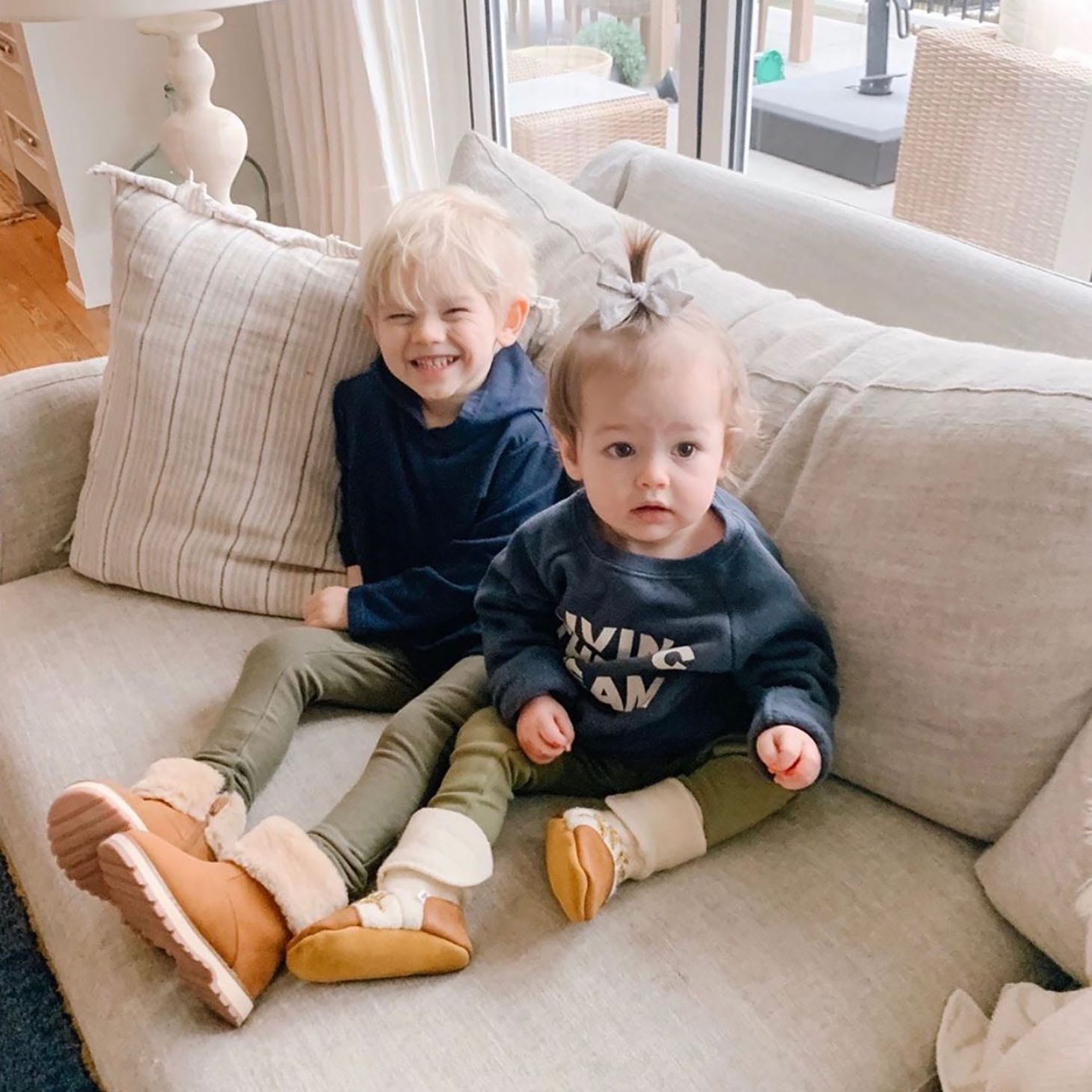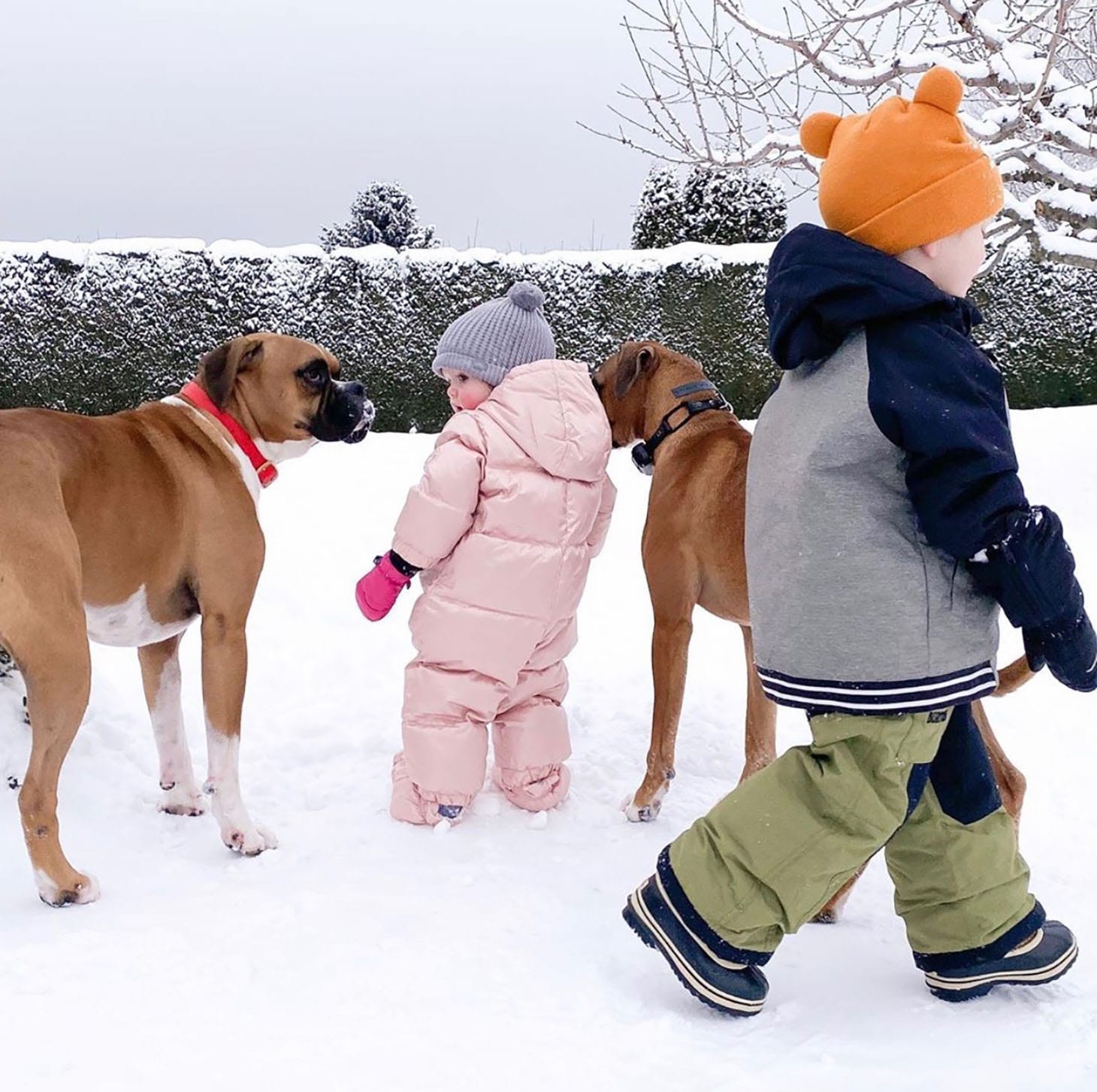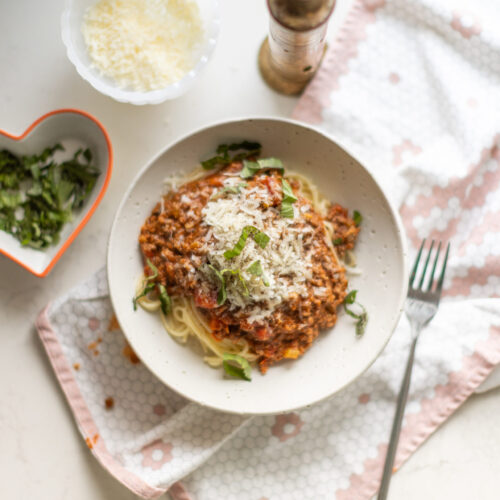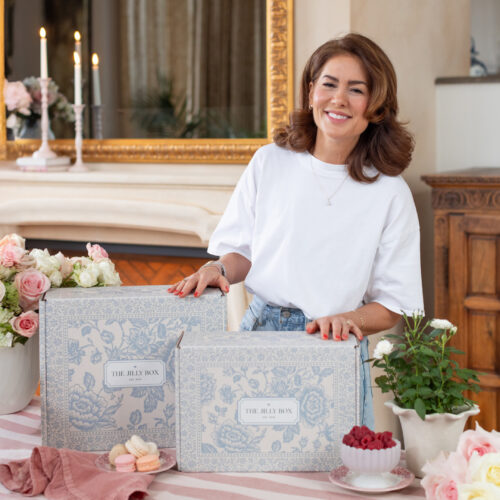Good morning everyone! I’m so excited to let you know that we have another special contributor blog post today from the team at The Mama Coach! The Mama Coach provided us with three tips for enjoying the holidays with your baby in December and today The Mama Coach is going to share tips on how to deal with sibling conflict!
Hi everyone! It’s the Mama Coach here! Sibling conflict can be so frustrating for parents. When pregnant with your second baby, most mamas dream of the beautiful relationship their children will have. This is normal. It is also really normal to realize it won’t be perfect. Actually, it will be far from it. Siblings use each other to learn and practice healthy relationships. This means their relationship won’t be free of conflict, as siblings don’t just automatically get along. Navigating their roles in the family and with one another is something that is learned through doing.
“When children are three to six years old, sibling fighting is the result of their immature social skills, mistaken ways to find their place in the family, and the reactions of the adults involved.” – Positive Discipline for Preschoolers
The cool part is, as parents, we have a huge hand in shaping our babies into little people that can communicate and have healthy relationships. We have the opportunity to set our babies up for success in their future – how wonderful is that?
At The Mama Coach, we’ve put a few ideas together on how to deal with sibling fighting!

1. Resist the urge to force them to share.
We have all been there. If my little guy cried loud enough, I would feel frustrated and tell my older boy to let him have it. What did that teach them?
1. If I cry loud enough, mom will give me what I want.
2. That they were in constant competition with each other, and mom would decide who gets what.
We realized this wasn’t working, and helped build a system around it. If there was a toy they both wanted, we would set a 10-minute timer. If one put the toy down sooner, the other would have to ask if he was done and if he could play with it. This helped build a clear boundary around sharing.
If your kids are toddlers, you will have to help with this. They may cry about having to wait for their turn as the concept of time is not as structured at this age. Redirection is your biggest tool here – pick up another toy and ask your little one, “Why don’t we play with this toy together while we wait for the timer?”. Hugs are great strategies for calming an upset child. A tight squeeze is also shown to drop cortisol levels, your fight, flight or freeze hormone.
Know that sharing doesn’t happen overnight, heck some adults I know don’t like to share! This is a skill that will take lots of practice and a ton of patience. It’s a great idea to run the scenario through once everyone is calm – role-playing is a great teaching tool. “What could you have said to your brother when you wanted to play with that toy?” Other curiosity questions start with “why” or “how”. Helping your children come up with different ideas on how they could have negotiated timing on their own (without you setting the timer) or figured out a way to play together with the toy. Teaching children how to use their words in an effective way is key to future success in a relationship.

2. It’s okay if it isn’t perfect.
As adults, we are still growing and working on our relationships. We are learning and growing as parents too, and communicating with our kids is a learned skill that gets easier over time, as well as with lots and lots of practice. Try to remember that kids learn by modeling – it often makes me laugh when I hear a sentence that I’ve said so many times uttered by my youngest during playtime with their sibling. Our kids are always watching and listening to what we say and do.
“Parent-child relationships offer one very important part of the early experience that directly shapes a child’s emerging personality. Emotional intelligence, self-esteem, cognitive abilities, and social skills are built on this early attachment relationship. … Our role as parents serves to support our children’s development, not guarantee its outcome. Research suggests that children who have had a positive connection in life have a source of resilience for dealing with life’s challenges.” – Parenting From The Inside Out.
Practicing gratitude and appreciation is a conscious choice you can make every day and will be so beneficial to your children’s mindset. For example:
1. “I saw how frustrated you felt when your brother kept interrupting, and I love how you asked him nicely to wait until you were finished. How did that make you feel?”
2. “I am so grateful that I get to pick you up from daycare and hear all about your day. What was the funniest part of your day? What was the hardest part? What made your heart happy? I am here to listen.”
3. Try to avoid questions that can be answered with a straight “yes” or “no”, and instead rephrase your questions to promote deeper, more thoughtful discussion. This might take practice for both of you, but it will be worth it!
4. “I really enjoy our one on one time. What should we do together today?”
The hardest yet most effective thing we can do is provide a positive connection, and continually strive to be better role models.


Fill their bucket
A positive connection with your child will make your parenting journey that much easier. We suggest spending a minimum of 10-15 minutes of child-directed play with each child once per day. The idea is to fill their bucket and their need for attention. All children want to feel belonging and significance. Putting technology away, getting down on the floor, and giving your child your undivided attention is better than any gift you can buy from the store.
“[Alfred] Adler believed that human behavior is motivated by a desire for belonging, significance, connection, and worth, which is influenced by our early decisions about ourselves, others, and the world around us. Interestingly, recent research tells us that children are ‘hard-wired’ from birth to seek connection with others and that children who feel a sense of connection to their families, schools, and communities are less likely to misbehave.” – Positive Discipline for Preschoolers
Often when children act out or fight with one another we as parents see it as them being “bad”. When we dig deeper we realize that developmentally so much more is going on. Children might not have words for their feelings, depending on their age, and so using their hands (hitting) might seem like the only option for them.

Another thing to consider is that children sometimes use misbehavior to get your attention. Positive attention is better for everyone involved, but deep down children know that if they hit their brother then you will stop what you’re doing and come to be with them. Instead of being upset, try utilizing one of these three options:
1. Tell your children that you will not be present until their fighting is over – then find a secure place to wait it out (like a locked bathroom)!
2. Hold the space – stay in the room and be present, but stay quiet until they are ready to stop fighting.
3. If you are worried about anyone’s safety – utilize a cooling-off period or send them outside until they are ready to stop.
Lastly, give grace; to yourself and your babies. You have a house filled with love and you are doing the best you can. It won’t always be perfect, and that is life. I have days where I mess up, get frustrated and my boys see it. I always try to apologize, hold them close, and then we start all over again. It is the swinging pendulum of motherhood; it’s beautiful, inspiring, messy and overwhelming – often in the same hour!
If you would like more ideas on helping your little one with relationships and big feelings, The Mama Coach has put together an eBook filled with our three favourite parenting tips. Please CLICK HERE to download your copy today! If you’d like to connect with a Mama Coach in your area – please click here. Remember you are never alone and parenting is much more fun with a village surrounding you!
xo





Beautifully written!